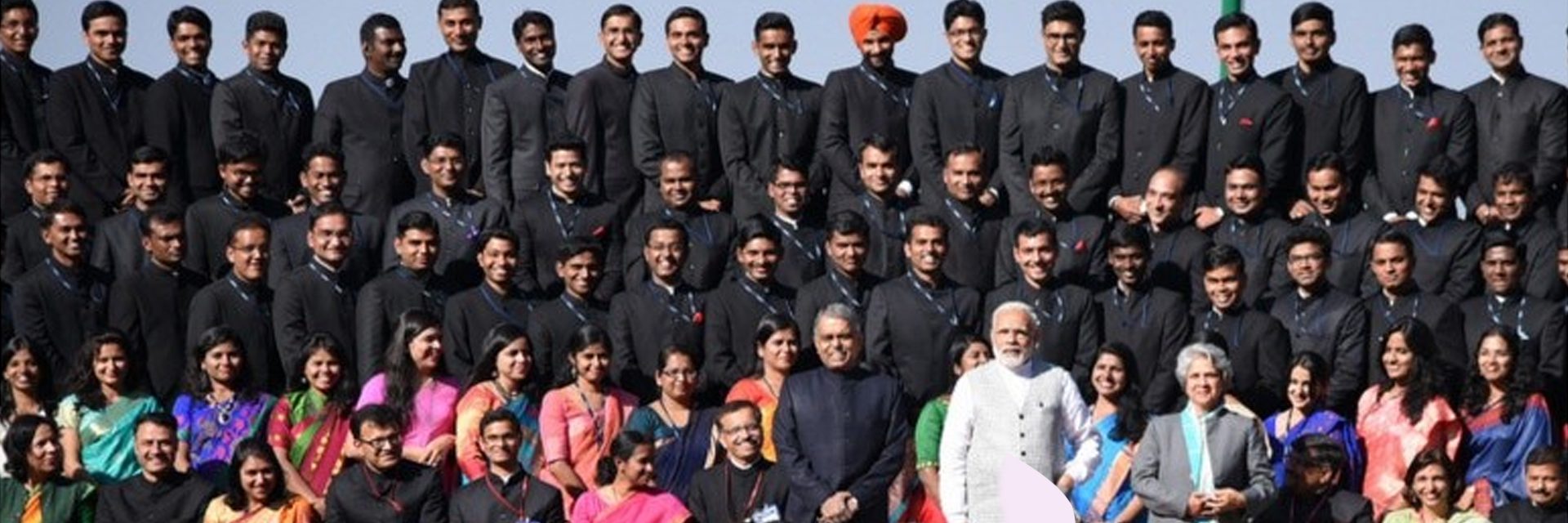(November 11, 2022) Cycling his way to the Gorakhpur University, Vivek Dube was enamoured by the sprawling bungalow of a DIG rank police officer, the sentry standing at the gate and the flicker bulb on the police officer’s car.
The road from Dube’s house to the University passed through the DIG’s residence and the youngster had his eyes fixed on them, every day. “I will become a DIG one day,” he would tell himself, unaware of police ranks higher than that at that point in time, and pedal his way into the university and back.
Rise of the honest cop
And lo and behold, he landed in the service one fine morning! “When I got the offer to join IPS, my mother advised me against joining it saying it is a dirty service. I thought how could the police department be dirty? Only people make it dirty or good. After spending 35 years in service, I realised that I was right,” smiles Vivek Dube in an exclusive conversation with Global Indian.

IPS officer Vivek Dube
A stickler for rules and meticulous in his investigation, Dube, who underwent two prestigious courses — one in Australia and the other in US — is among those rare few who worked strictly within the framework of law.
From heading the investigation into the sensational Bilkis Bano case in Gujarat while working in the CBI, to handling militancy in Jammu and Kashmir during his stint in the CRPF to fighting Naxalites down south, Vivek Dube, a 1981 batch IPS officer, has done it all. “Wherever I worked, high integrity and absolute honesty always came to my rescue,” says Dube, an Andhra Pradesh (undivided) cadre IPS officer, who worked as SP (superintendent of police) of various districts at the height of naxal movement in the state in his early days in service.
He may have retired from service, but the investigations he headed into some of the most sensational cases in the country during his eight year long stint in the CBI, continue to make headlines. Bilkis Bano gangrape case is just one of them.
The Bilkis Bano case
As part of the investigation, Vivek Dube personally met Bilkis a few times. “When I heard this pathetic story, I was so disgusted with the loss of humanity,” says the police official, recalling how, despite Bilkis lodging a complaint at Limkheda police station and an FIR being registered, the case was closed by the local police on the grounds that she was giving varying statements.\
Bilkis narrated to Dube the horror she underwent from the moment she fled her village when the communal riots started until she was gang raped and left for dead by the accused. “Bilkis was very courageous and stood like a rock to face all the probing queries of a battery of defence lawyers. We supported her during trial and guided her,” says Dube, who also supervised the investigation and trial of sensational murder cases like Madhumita Shukla, Satyendra Dube, Jaggi and MLA Paritala Ravi and also the controversial Ayodhya case. It was around midnight in January 2004 that Dube took the tough call to arrest the 12 accused, who until then, were confident that nobody could touch them.
Courses abroad
Dube, who completed his post graduate degree in Physics (solid state physics) from the University of Gorakhpur in 1976 and secured third rank in the university, underwent two key courses abroad. One was a four-month course on strategic Human Resource management at University of Wollongong, Australia in 1997 and the other was a 35-day “Anti-Terrorism Assistance programme” at Baton Rouge, Louisiana, US in 2005.

At Wollongong, the IPS officer was taught how to improve his leadership skills and to manage the available Human Resources effectively. “We visited various government and corporate organizations, to talk to managers and understand how they were performing so well. The trainers used to place different tricky situations before us to know our reactions. It helped a great deal in becoming an effective manager at work,” informs Dube, who also served as Additional DGP (Provisioning and Logistics) and Additional DGP (welfare) in the AP police.
The second course at Baton Rouge in the US was a commando training during which he was taught how to work in a team and flush out terrorists holed up inside a house using quick and sudden action. “I also sharpened my shooting skills there. While practising for counter ambush, we were provided plastic bullets with painted chalks in front so that we would know where exactly the bullets hit on the body. This advance training was very fulfilling as I had never attended such kind of training in my career,” says the IPS officer, who completed his degree in Defence studies’ National Security and Strategic Studies from National Defence college, New Delhi in 2002.
Stint in ITBP
He also had a stint as a Commandant in the Indo-Tibetan Border Police between 1991 and 1995 (ITBP) during which he supervised the working of Mana, Ghastoli, Rattakona and Jagrao forward posts in Manna valley and Ghamsali, Bimlas and Geldung forward posts in Niti valley (on Indo-China border). Back then, he also participated in Joint Exercises with Army.
Much before he joined the CBI on deputation, it was his stint as SP of naxal-infested Adilabad district which was most challenging.
Dealing with Naxals
“This was a sleepy district with 43 percent reserved forest area and 10 percent other forests. PWG, a Naxalite outfit, was very violent and on the rampage then,” recalls Dube, who was initially taken aback when told by his fellow officers that they did not even know the name of the district secretary of the PWG, pointing to extremely weak intelligence gathering mechanisms.

A determined Dube started everything from scratch. Six months later, after making massive efforts to gather intelligence, results started showing. During his tenure, 29 gun battles took place between the police parties and Naxals in which 35 ultras were neutralised. However, 18 policemen also lost their lives in three ambushes. “It was a tough time but I left the district with lots of satisfaction,” remarks Dube, who also served as the Special observer appointed by Election Commission of India for West Bengal elections in 2019.
On policing today
What does he feel about the present-day policing ? “The police have definitely become more digitized now. Still, the police reforms that were ordered by the Supreme Court in 2006 have not yet been implemented. Unfortunately, the old culture of colonial policing still continues,” feels Dube, who earlier held charge of the posts of DIG, ACB, Delhi.
For instance, he says, Japan has got ‘Security Commission’ at state level and ‘Safety Commission’ at the national level. “These commissions are independent bodies and they only run the police,” points out the retired police officer, who otherwise loves reading good books and plays a game badminton, lawn tennis and table tennis every day without fail.
- Follow Vivek Dube on Linkedin



An outstanding officer and a role model for many
Vivek Dubey IPS, has been a close friend for over four decades.He was my roommate in LBSNAA, Mussorie. He is quite erudite, focussed and a tough officer, at the same time kind and considerate. These qualities have made him a super duper hit with friends. Though he is meticulous, he is not a stickler to rules which has a negative connotation. He is thoughtful, innovative and applies his mind to arising situations. These qualities of head and heart have given him many assignments of critical National importance. Very Well done Vivek.
Sir, really delighted to read so many wonderful things about you. Apart from all achievement narrated in the article, you are a great influencer. Have learned many good things from you. Many wonderful stories, some awesome posts. Just keep on rocking Sir. With profound Regards 👍
Courageous,Honest & Nationalist Personlity. Ever Praiseworthy. Awesome Friend
Dear Vivek – it was a wonderful reading so many things about you that I wasn’t really aware of. Excellent track record. Have a blessed retired life and enjoy. Regards
Sir, I am so delighted to read so many exciting yet challenging stories about you and how you managed such intense situations! You are the epitome of how a person can achieve so many endeavours and yet be so humble. You are one of the most gentle and humble soul I have ever met. I really look forward to you since my childhood days as my father used to tell so many stories about you. Someday with your blessings I want to serve the nation following your footsteps.
Dear Vivek
It really gave me immense pleasure to read this fantastic article on your excellent track record of your service as an IPS officer .I ,during our association of few months in Bhopal while working as probationary officers in Bank of India , ,judged you a very bright, simple ,humble and loveable person though focused and honest in working and dealings. But today, after reading this article I find you a different person. I am enlightened and extremely happy that I am having such a brave honest, very careful and dedicated friend who performed his duties without fear and favor. Wish you a very happy and peaceful Retired life.
Love you…good luck
Ram Narayan